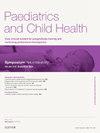Prader Willi syndrome: an update on the multidisciplinary approach
Q3 Medicine
引用次数: 0
Abstract
Prader-Willi syndrome (PWS) is a rare genetic disorder characterized by hypotonia, hyperphagia, obesity, and a spectrum of cognitive and behavioural issues. Clinical manifestations differ according to the age of presentation and as such a multidisciplinary approach is important across the lifespan to improve outcomes. Often this may be led by paediatric endocrinology but should include input from dietetics, psychology, respiratory, speech and language and others according to clinical need. It is likely these needs will change as the child grows and, as such, the composition of the team should remain flexible. Overall, a comprehensive, multidisciplinary approach encompassing medical, nutritional, behavioural, and educational support is essential for managing individuals with PWS, significantly improving the quality of life and long-term outcomes for affected children and their families.
Prader Willi综合征:多学科方法的更新
普瑞德-威利综合征(PWS)是一种罕见的遗传性疾病,其特征是低张力、嗜食、肥胖以及一系列认知和行为问题。临床表现因年龄的不同而不同,因此多学科治疗对于改善预后非常重要。通常,这可能由儿科内分泌学主导,但根据临床需要,应包括营养学、心理学、呼吸学、言语和语言等方面的投入。随着孩子的成长,这些需求很可能会发生变化,因此,团队的组成应该保持灵活。总体而言,综合的多学科方法,包括医疗、营养、行为和教育支持,对于管理PWS患者至关重要,可以显著改善受影响儿童及其家庭的生活质量和长期结果。
本文章由计算机程序翻译,如有差异,请以英文原文为准。
求助全文
约1分钟内获得全文
求助全文
来源期刊

Paediatrics and Child Health (United Kingdom)
Medicine-Pediatrics, Perinatology and Child Health
CiteScore
1.20
自引率
0.00%
发文量
70
 求助内容:
求助内容: 应助结果提醒方式:
应助结果提醒方式:


